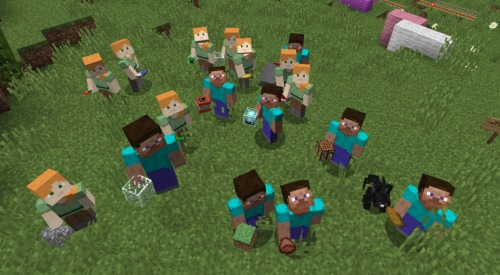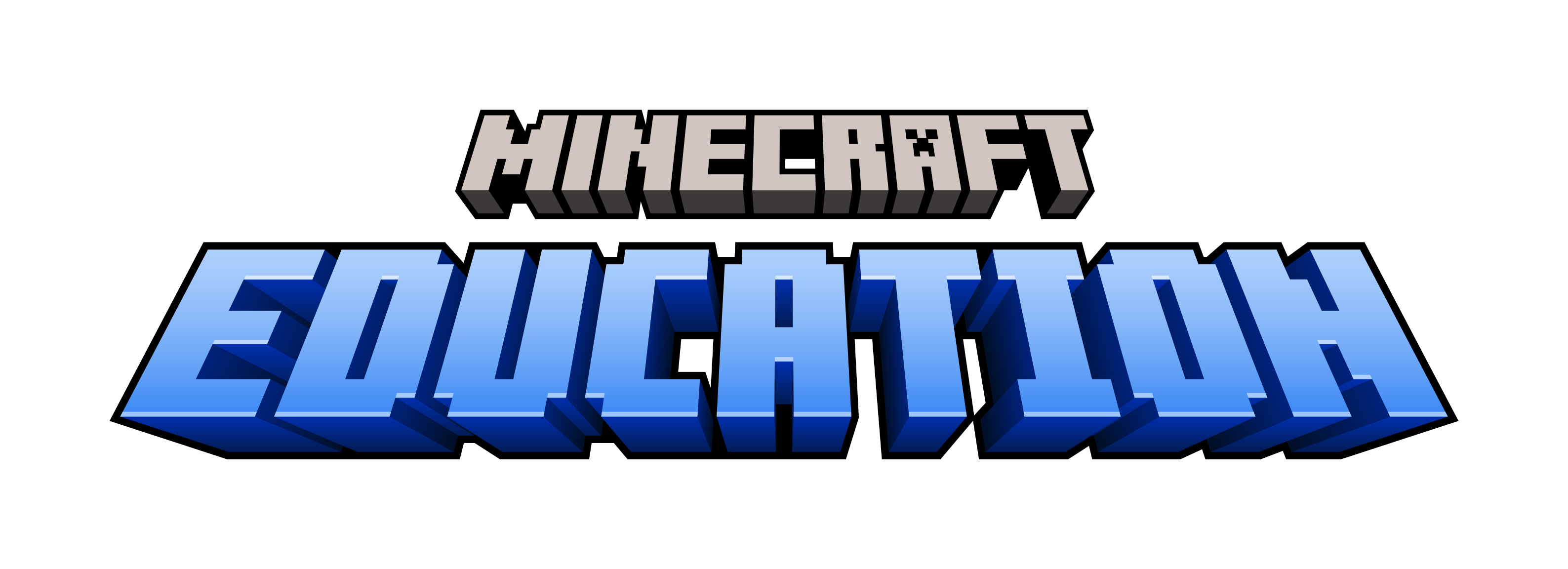Why Minecraft Rewrites the Playbook for Learning

You know that Minecraft is massive. But, did you know it is transforming learning? Geeky teachers have brought Minecraft to subjects ranging from history to biology to probability. The game is being rolled out to every secondary school in Northern Ireland this month. If you’re a parent, you’ve noticed Minecraft offerings spawning in your local summer camp listings. The Chicago Architecture Foundation offers a Minecraft camp for budding builders. Ninety-two libraries participated in the International Games Day Minecraft Hunger Games tournament, and crowned a 13-year-old girl as its champion. And, I’ve helped launch Connected Camps’ Summer of Minecraft, a new in-game online camp. Progressive educators have been advocating for games-based learning ever since Carmen Sandiego, Oregon Trail, and Reader Rabbit opened up a new market for consumer children’s software in the ‘80s. SimCity demonstrated how a building and tinkering game could be embraced by parents, kids, and educators. And, Scratch shows how kid-centered learning communities can thrive online. Minecraft is part of this lineage of learning games, but it fundamentally rewrites the playbook. Why? 1. It’s the first massively mainstream learning game. We’ve seen other learning-ish games become big commercial successes, like SimCity or Civilization. But, Minecraft is the first title to compete with the biggest entertainment names. This means it successfully steals kid mindshare from Mario and Bejeweled. This is a historic first. 2. Kids build stuff together online. Most educational platforms and games seek to convey content, whether it is math, science, history, or another school subject. Minecraft is more like Legos or the Logo programming language. In Seymour Papert’s terms: children programming the computer rather than being programmed by it. Sure, you can put school content in a Minecraft world, but at its heart, Minecraft is about constructing and problem solving in a networked social world. The blocky indie vibe just contributes to the culture of DIY creativity in Minecraft and kids feel empowered to make it their own. 3. Endless ways to level up. Minecraft has something for everyone, regardless of age or interest. Kids as young as 4 and 5 can start with the pocket edition, gradually moving up to the PC version and connecting via multiplayer mode. Players can battle zombies, build a circuit system, or a beautiful palace. Or, they can admire the achievements of other players and builders in the Minecraft YouTube ecosystem. This means that there is always something to be inspired by, a mentor to seek out, and a way to level up or branch out. 4. Servers are player-operated. Minecraft isn’t the first virtual world to value player creativity. Remember Second Life? But, what makes the DNA of Minecraft fundamentally different from Second Life or WoW is that any player can set up and administer their own server. This makes the Minecraft scene a breeding ground not only for digital creativity, but social innovation. Players are building their own server-based communities in Minecraft governed by the values and rules that they develop and enforce. No corporate overlord dictating the rules of property and play here. The mod world in Minecraft is teeming with social engineering tools, ranging from chat moderation add-ons to systems that assign plots and different privileges to players to minimize griefing. Lessons in digital citizenship anyone? Together these four dimensions of Minecraft make my progressive digital educator heart go pitter patter. My career is devoted to seeking out ways to mobilize digital technology and networks for learning that empowers kids to be problem solvers, creators, and civically engaged. Minecraft is game changing in my corner of educational reform and the movement for connected learning. So, I can’t help but join the growing ranks of educators running programs in Minecraft. After a successful pilot with 250 kids last summer, I’ve launched a new start-up with two fellow girl geek educators, Tara Tiger Brown (co-founder of LA Makerspace and KitHub), and Katie Salen (founder of Institute of Play). On July 6, we will be opening the doors to a new online summer camp in Minecraft that runs on our homegrown servers, and campers from all over the world are welcome to sign up. Our servers are tricked out with mods designed to make the environment kid and learning friendly, and will be staffed by high school and college counselors who are longtime Minecraft nerds. Our weekly challenges are open to everybody on our server or elsewhere and we’re hoping to draw even more kids to the learning potential of Minecraft. Minecraft Resources for Educators: * Connected Camps Summer of Minecraft Educator Program * Connectedlearning.tv Minecraft webinar series * MinecraftEdu offers teacher-friendly Minecraft packages * Edutopia’s ideas for using Minecraft in the classroom


